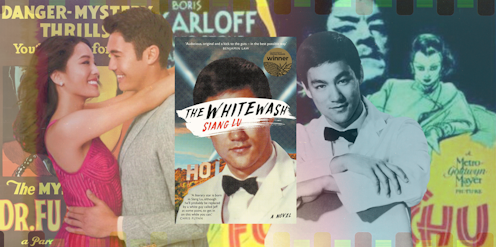The Whitewash is a scathing, hilarious satire of Asian misrepresentation in Hollywood
- Written by Jindan Ni, Lecturer, Global and Language Studies, RMIT University

Siang Lu’s debut novel The Whitewash is a scathing satire of the big-budget film industry’s ethnic and racial myopia. Original, critical and hilarious, the book is a product of the Glendower Award for an Emerging Queensland Writer, which this manuscript won in 2021.
Review: The Whitewash - Siang Lu (UQP)





